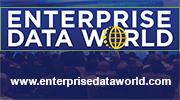 Millennials (the new generation of future Data Experts) have a lot to offer. But, enterprises might need to think a little differently about how to foster their growth so that they can deliver real value to the organization.
Millennials (the new generation of future Data Experts) have a lot to offer. But, enterprises might need to think a little differently about how to foster their growth so that they can deliver real value to the organization.
As baby boomers retire – and as businesses realize that Generation X wasn’t big enough to replace all those who held upper management positions – it’s important to cultivate the millennials (aka data babies) to move up the Data Management ranks, according to Tony Mazzarella, president of DAMA New England and a visual analytics executive for a large financial services company.
There will be challenges, he assured an audience during his “Fostering Data Babies: Engaging a Younger Generation of Information Professionals” presentation during the Enterprise Data World 2017 Conference. Some of those challenges are due to the fact that millennials tend to have a different idea of what work should be, and also from the problem that the Data Management realm is changing with the growth of topics like Agile/DevOps, Internet of Things, Machine Learning, Cybersecurity, Data Privacy and ethics compliance arenas, among others.
Millennials, who are projected to make up 75 percent of the workforce by 2025, need to be groomed to take on Data Architect, Data Steward and Data Governance jobs. “Most of these people are not going to school to learn this,” he noted, and the fast-paced, get-it-done mentality of the tech industry doesn’t on its own drive them in the direction of getting a handle on data structuring and Data Quality fundamentals – a problem as the world becomes “more data-empowered,” he notes.
In fact, he’s been there himself as one of the earlier members of Generation Y, moving up quickly from a developer role when he started out in the industry and leapfrogging to other companies and higher-level jobs. It was while working with DAMA on a development project related to CRM that he realized that many of the problems his teams had faced had to do with data definitions and metadata, a world that he knew very little about despite his years in the industry.
Amid the hectic, startup mentality environments he grew up in, “I missed the fundamentals,” he said. “I accidentally fell into the data world. It hadn’t been my intent to run a digital analytics team and implement a Data Governance program and act as a Data Steward.” And the risk, he says, is that so much knowledge about the data world is going to be lost as the older generation retires – unless those already in the data profession find young talent, share their knowledge and give millennials the skills they need to take things forward.
Getting Millennials Onboard
There’s opportunity, though, too, with Data Management being a values-based profession that should appeal to millennials’ overall desire to participate in meaningful work, he explained. “They’re tech-savvy, idealistic, risk-tolerant and independent thinkers who work well in groups,” he said, and money is less of an issue to them than believing that they’re doing something good.
That’s not to say that businesses shouldn’t pay them well and offer a decent benefits package. But, it will be to their benefit to find a way to explain to this generation – especially the younger members of it – how their purpose maps to a higher good, and why Data Architecture is a key component of achieving those ends. “Data Governance,” he said. “Is transformational, so there’s no better place to be for millennials.”
And those millennials don’t have to come from a technology background, either. “Get out of the mindset where you are looking for specific people to do specific jobs,” he said. “They like to have diverse-skill sets and work on different challenges.” You can find talent in philosophy or English majors, or business majors too.
“They have a fantastic appreciation for words and definitions, so why when we look for people to work in data do we fall back to statistical or computer science or MIS backgrounds? That’s a legacy mindset from when we were IT-focused, but now we have to be business-facing in a lot of ways.”
And once you’ve got their attention, as a senior data professional you will get better results if you take on more of a mentoring role than a managing one, he thinks. Fostering a team mentality and empowering them to solve problems appeals to their desire to be challenged and engaged, as does continually rotating their assignments and goals. “They don’t want to feel as if they’re stagnating,” he said.
He also advised restructuring data teams to be more collaborative and less vertical. “Bring younger talent to the table with managers and people across the company,” he said. Networking – the social aspect – is a fundamental draw for millennials, he explained.
And while money might not be the highest priority, they do want to get ahead – which helps to explain their overall penchant for moving quickly from job to job. It’s a good idea to make sure they know that they are working their way up, perhaps with more frequent if informal one-on-one reviews.
Don’t be shy about even more continuous feedback, either, telling them when they’ve done a great job but also helping them see where and how they could have done something better.
Be prepared to help them (the new Data Experts) walk through an issue when they come to you to tell you they messed something up, too – it’s important they feel comfortable doing that. Another thing you want them to feel confident about is asking why. “It doesn’t mean they’re trying to challenge you, they just want to understand,” he said – and to feel that contributions they may make about alternatives will at least be considered.
The bottom line from Mazzarella:
“The sooner you can get millennials into data professional roles and to the table as peers to influence change, the better off in the long-term the organization will be.”
Check out Enterprise Data World at www.enterprisedataworld.com

Here is the video of the Enterprise Data World 2017 Presentation:
Photo Credit: NinaMalyna/Shutterstock.com
